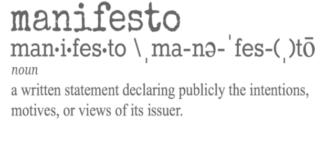Wales

‘The ability of the UK Parliament to override a measure made in any part of the United Kingdom is one of the mischiefs in the UK’s constitution that needs fixing.’ Why it is time to reform the Sewel Convention
The Sewel Convention, by which the UK’s government normally seeks the consent of the devolved legislatures on matters that come within their competence, is enshrined in legislation. However, writes Matthew Hexter, it remains too weak and a constitutional convention is needed to fundamentally alter the balance of powers between London and the devolved nations.

Schrodinger’s devolution and the potential for ongoing political instability after Brexit
Territorial governance in the UK has taken the form of ‘Schrodinger’s devolution’, where the devolved nations both have and have not experienced fundamental constitutional change. But Brexit highlights the need for exact decisions where ambiguity has so far existed, explain Mark Sandford and Cathy Gormley-Heenan.

Evidence from Scotland and Wales: representatives elected via party lists are less likely to reply to constituents – but we should be careful about the conclusions we draw
Websites such as WriteToThem.com make it simple for constituents to contact their elected representatives, but how responsive are politicians to these communications? And does the system by which they are elected shape their responses? Research by Alex Parsons and Rebecca Rumbul shows that under the UK’s Additional Member Systems, constituency representatives are more likely to reply than those elected via party list. This raises further research questions about the subjects they reply about and different priorities for representatives under this system.

The many roles of manifestos at the subnational level in British general elections
Alistair Clark and Lynn Bennie assess the roles of national party manifestos across Britain, Scotland and Wales in UK-wide general elections, and illustrate the multiple functions these documents perform in complex multilevel systems of government.

How majoritarianism endures in the structures of the UK’s devolved institutions
Scotland and Wales’ devolved political institutions, elected under proportional Additional Member electoral systems, were intended to produce a more consensual political culture. However, writes Felicity Matthews, although their electoral rules have increased the proportionality of representation, the structures of the Scottish Parliament and National Assembly for Wales have meant that a more consensual approach to policy-making has been more limited than might have been expected.

The prospects for electoral reform in Wales
With the introduction of the Wales Act of 2017, the National Assembly gains significant new powers. As part of this, it can enact its own proposals for electoral reform, including changes to the electoral system and introducing votes at 16. Jac Larner takes a look at what these changes would entail, and the prospects for implementation.

Different visions of representation among voters and candidates in Wales
Whose opinions should Assembly Members prioritise when carrying out their duties in the Welsh Assembly? Here, Siim Trumm (University of Nottingham) compares the views of voters and candidates on how AMs should vote when confronted with competing pressures. He finds that candidates are more likely to think that it is acceptable for AMs to discard the views of their voters in favour of their own views or those of their party than voters.

Politicising national identity: how parties try to define ‘Welshness’ for themselves
The politicisation of national identity in Wales has increased dramatically since devolution. But political parties do not present a common version of ‘Welshness’, writes Sophie Williams. Each party expresses its own version instead, conflating national identity with their own political ideology in the process.

Outside the south-east, Britain’s towns are struggling to hold on to their young people
Many of Britain’s towns are shrinking; big-city Britain is largely thriving. Taking south Wales as an example of these divisions, Ian Warren explains why his new Centre for Towns will advocate for the future of our towns, particularly during a period when both major parties in the UK parliament appear committed to city regions. Merthyr Tydfil, […]



 Democratic Audit's core funding is provided by the Joseph Rowntree Charitable Trust. Additional funding is provided by the London School of Economics.
Democratic Audit's core funding is provided by the Joseph Rowntree Charitable Trust. Additional funding is provided by the London School of Economics.